By Lucy Ezeliora Ubulu-Uku, Delta State
The historic Ubulu-Uku Kingdom, located in the Aniocha South Local Government Area of Delta State, recently burst into vibrant life as residents of all ages convened to honor the Iwu Festival 2025 with unmatched enthusiasm and grandeur.
Recognized as one of the most significant cultural festivities within the Anioma region, this annual event was spearheaded by Chief James Asika Ibori Onwordi, the esteemed Onishe Ezemu (Traditional Prime Minister) of Ubulu-Uku Kingdom.
A Celebration of Heritage, Harmony, and Togetherness
The two-day festival commenced with an electrifying array of dance-floor/” title=”From Kitchen Staples to … Floor Moves: How Power Oil is Revolutionizing Health and Style”>traditional dances, melodious songs, and sacred rituals. Clad in majestic royal attire, the Onishe Ezemu led fellow chiefs and community members in vibrant parades throughout the town, fulfilling his role as the heritage-celebration/” title=”UNESCO …s Sango Festival as a Vibrant Intangible Cultural … …”>festival’s guardian.
Participants, including men, women, and youths, adorned themselves with mud and white chalk-a revered emblem of purity and peace-while joyfully dancing through the streets. The atmosphere was alive with the rhythmic beats of drums, spirited chants, and traditional war songs that paid homage to the essence of Iwu.
In an interview, Chief James Asika Ibori Onwordi likened the Iwu Festival to the Christmas celebration of Ubulu-Uku, emphasizing its role as a time for peace, unity, and communal joy each October. He described it as a moment for reconciliation, where differences are set aside, and the community unites in dance, forgiveness, and festivity.
Deep Cultural Roots and Time-Honored Customs
Steeped in ancestral traditions, the Iwu Festival has been observed for countless generations. It serves as a period for cleansing the land, expressing gratitude to the deities for bountiful harvests, and ushering in a season of renewed prosperity.
Various quarters of the kingdom-including Udo, Agbonta, Onitcha, Ogbe-Ego, Abu-edo, Aku, and Isho-joined the Onishe in venerating the Ezeiwu Shrine, their voices rising in unison with chants of “Iwu! Iwu! Iwu!” in a spirited display of communal pride.
Chief Ibori highlighted that, akin to other Anioma festivals, Iwu is a collective celebration meticulously organized to involve both elders and youth. It is believed to have originated from the desire to sustain harmony between humanity and the spiritual forces governing nature.
Music, Dance, and Iconic Festival Figures
Each quarter boasts unique songs and dance routines, rarely performed outside the festival’s context. The primary musical instruments include the Agogo (a small bell), Ekwe (a wooden drum), and Akpele (a traditional flute).
Key figures in the festivities are the Ohene (Chief Priest), three Eze-Iwu, and the Enem. The Ohene dons a white cloth known as Akwa-Ocha and a white feather on his head, while the Eze-Iwu and Enem wear red garments. Their bodies are coated with Nzu (native chalk), and they are expected to captivate the audience with their elegant dance moves.
During the festival, specially composed songs honor distinguished sons and daughters of the community and gently admonish those who have breached societal norms. Historically, this practice served as a public means to promote accountability and encourage virtuous conduct.
Respecting Sacred Traditions and Festival Protocols
Participants observe several sacred customs during the Iwu Festival. Notably, wearing footwear within the festival grounds is prohibited, as the area is deemed holy; covering one’s feet is considered disrespectful.
The application of native chalk on the body is also a revered ritual, symbolizing sanctity and unity among all attendees.
Wrestling, Feasting, and Communal Merriment
A highlight of the festival is the traditional wrestling contest held on the eve of the main event. This friendly competition tests strength and valor, historically serving as a platform for young men to demonstrate bravery and, in some cases, win the favor of prospective brides.
Following the matches, families and friends come together to share a sumptuous feast featuring local delicacies and drinks, fostering camaraderie and generosity that lasts well into the night.
Sacred Rituals and the Pilgrimage to Mkpitime River
A pivotal moment in the festival is the sacred procession to the Mkpitime River, undertaken by the Eze-Iwus and the Chief Priest. Each Eze-Iwu carries a consecrated pot of water back to the palace of the Obi of Ubulu-Uku.
This ceremony, called Otito, symbolizes purification, renewal, and the cleansing of the land. It is believed that failing to return with the sacred water would bring serious misfortune upon the bearer.
The festival concludes on the final day, known as Idune-Iwu, with the Onishe and Chief Priest leading the community in closing rites that invoke blessings of peace and prosperity for the land.
Renewal and Blessings for the Community
Chief Ibori explained that the Iwu Festival’s core purpose is to rid the community of malevolent forces and secure blessings for the year ahead. The event is a time to express gratitude for the harvest and to pray for continued peace and unity among the people.
Similar in spirit to the Iwu Festival celebrated in Ibusa, this event also involves significant roles for the Obi of Ubulu-Uku and the Nne-Ubulu, who oversee the sacred ceremonies and bestow blessings upon the community.
A Tradition That Bridges Generations
For the people of Ubulu-Uku, the Iwu Festival transcends mere celebration; it is a profound link to their ancestors and a reaffirmation of their identity.
Each October, the festival rekindles communal bonds and ensures that cultural heritage is passed down to younger generations.
As the final drumbeats echo and the last songs fade, one enduring truth remains: the Iwu Festival of Ubulu-Uku is a vibrant testament to peace, unity, and cultural pride that continues to shape the Anioma people’s identity.
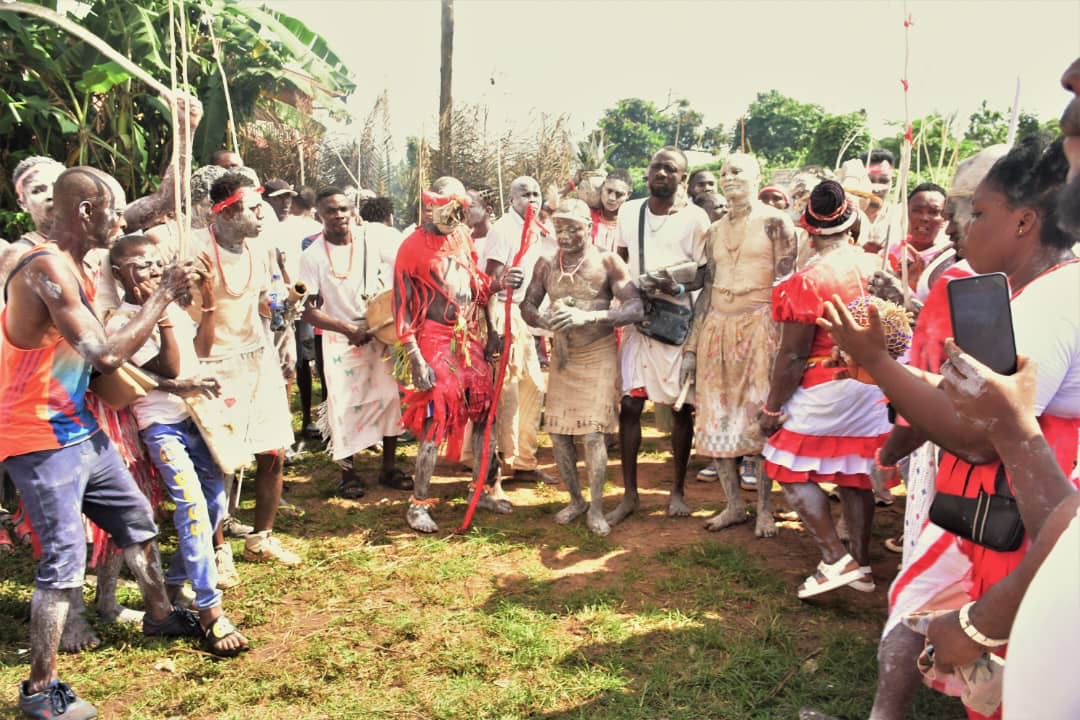
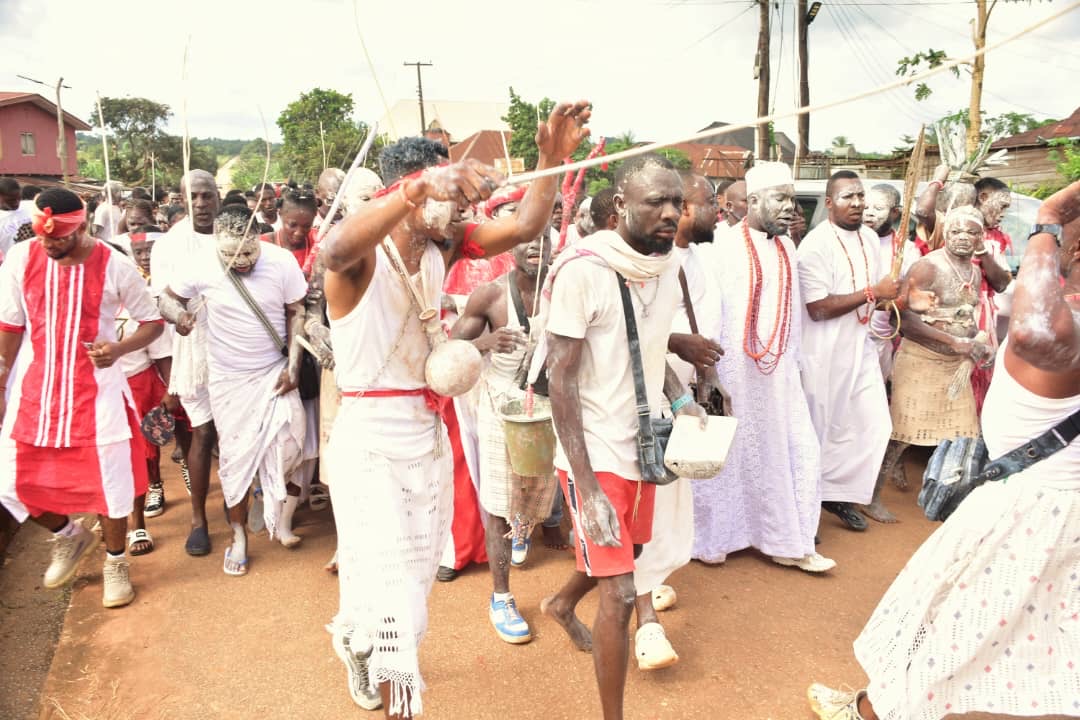
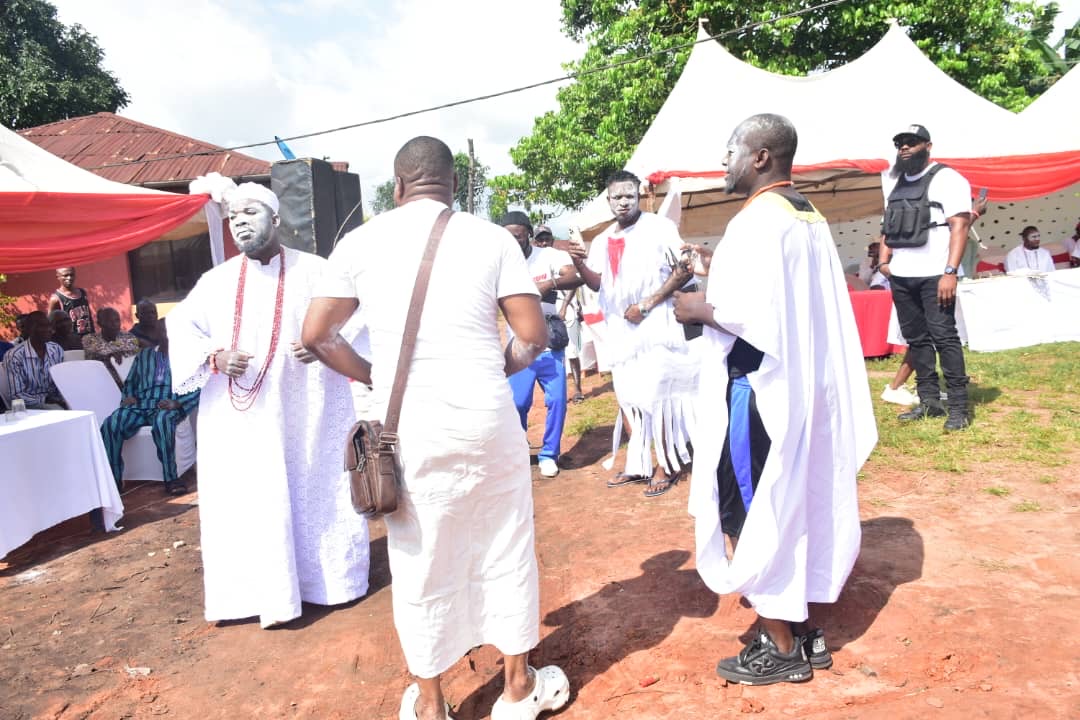
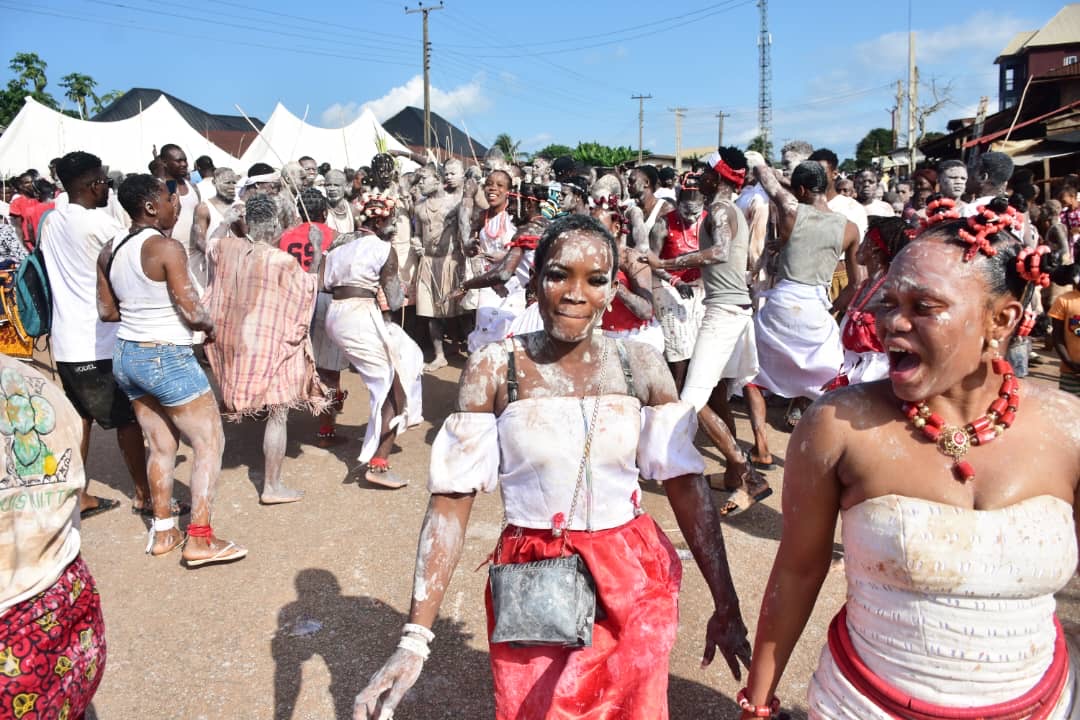
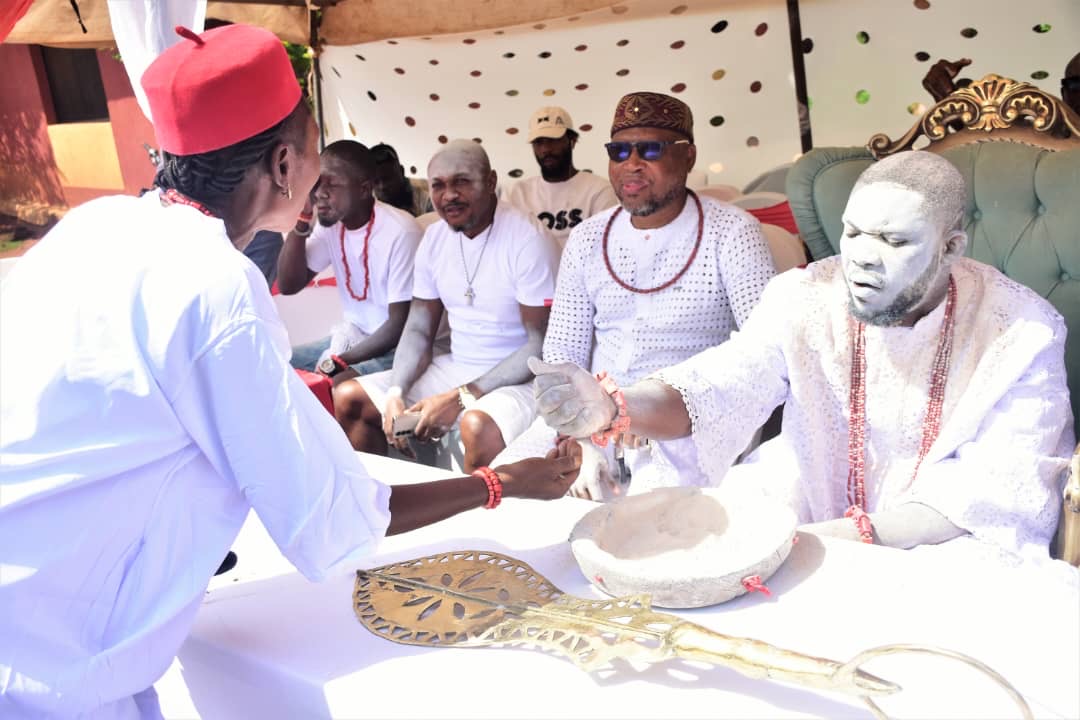
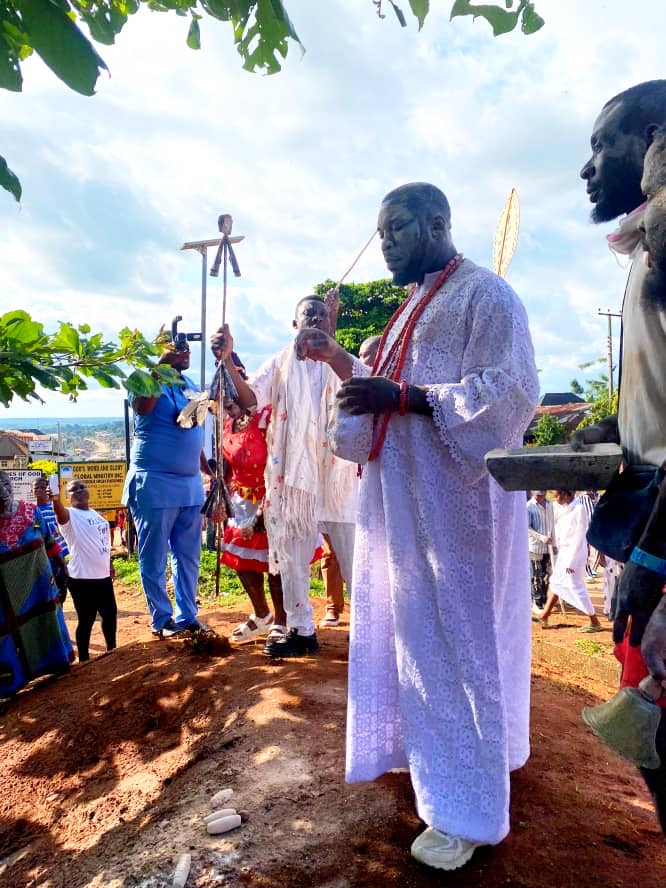
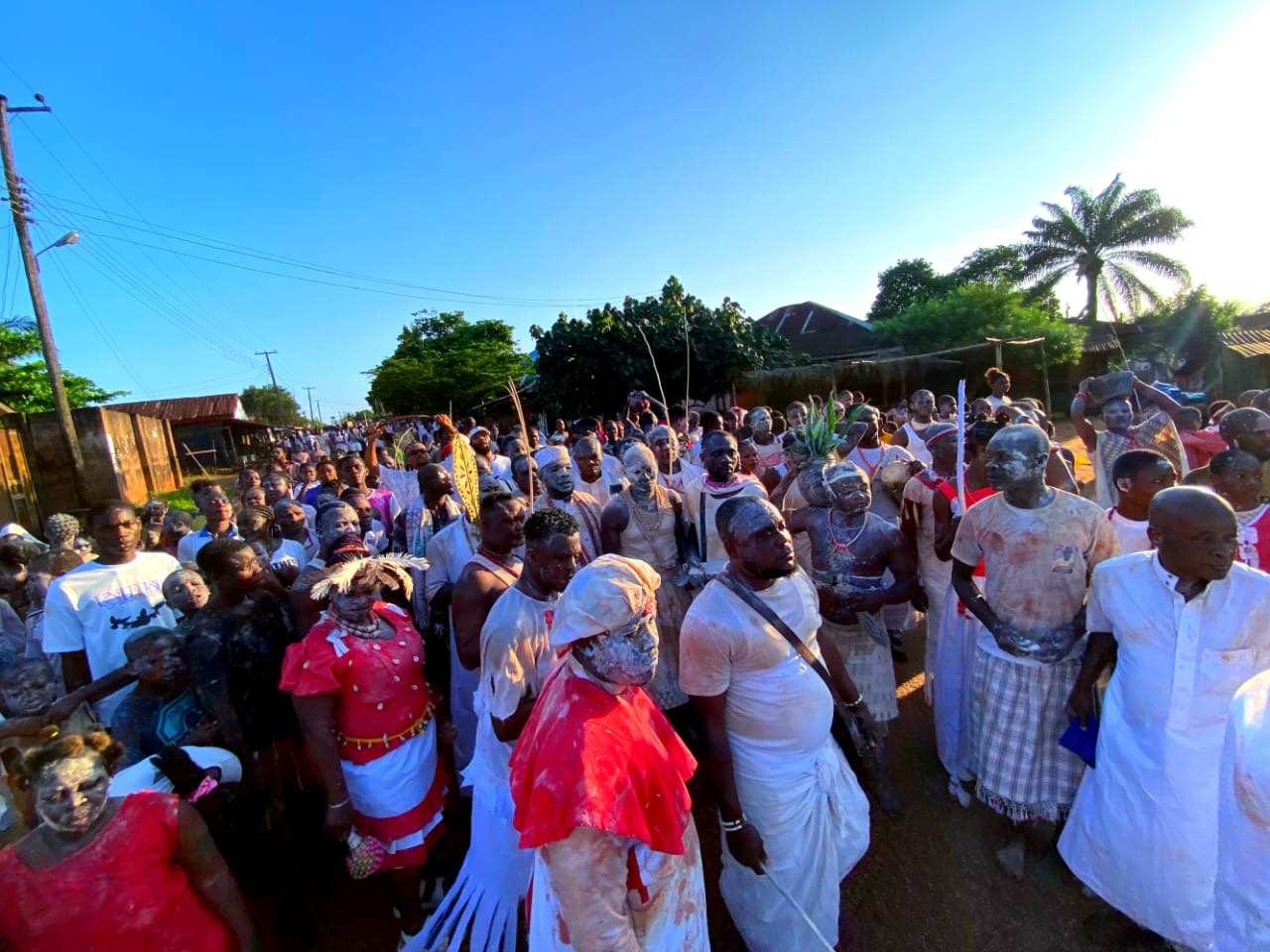
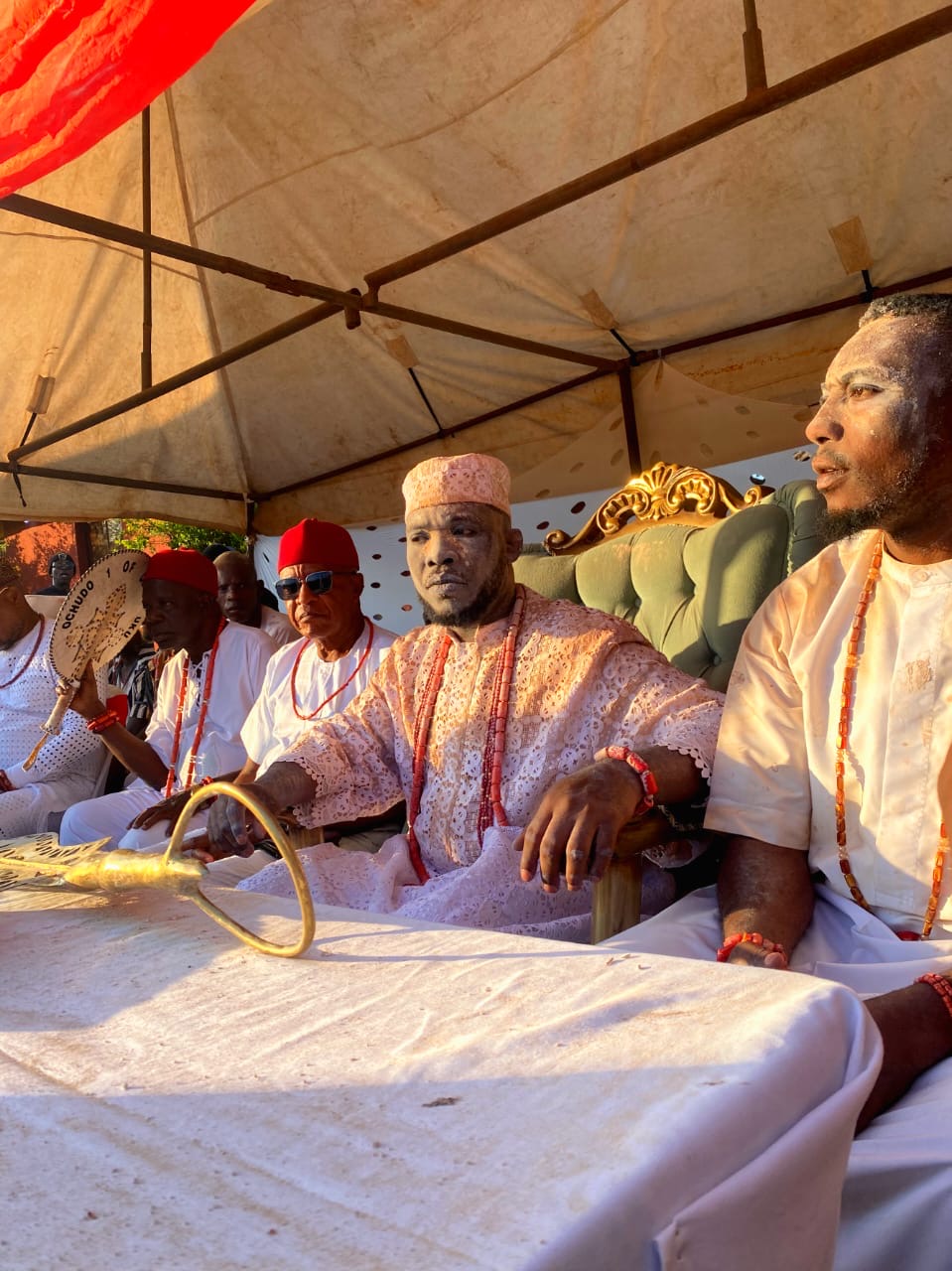
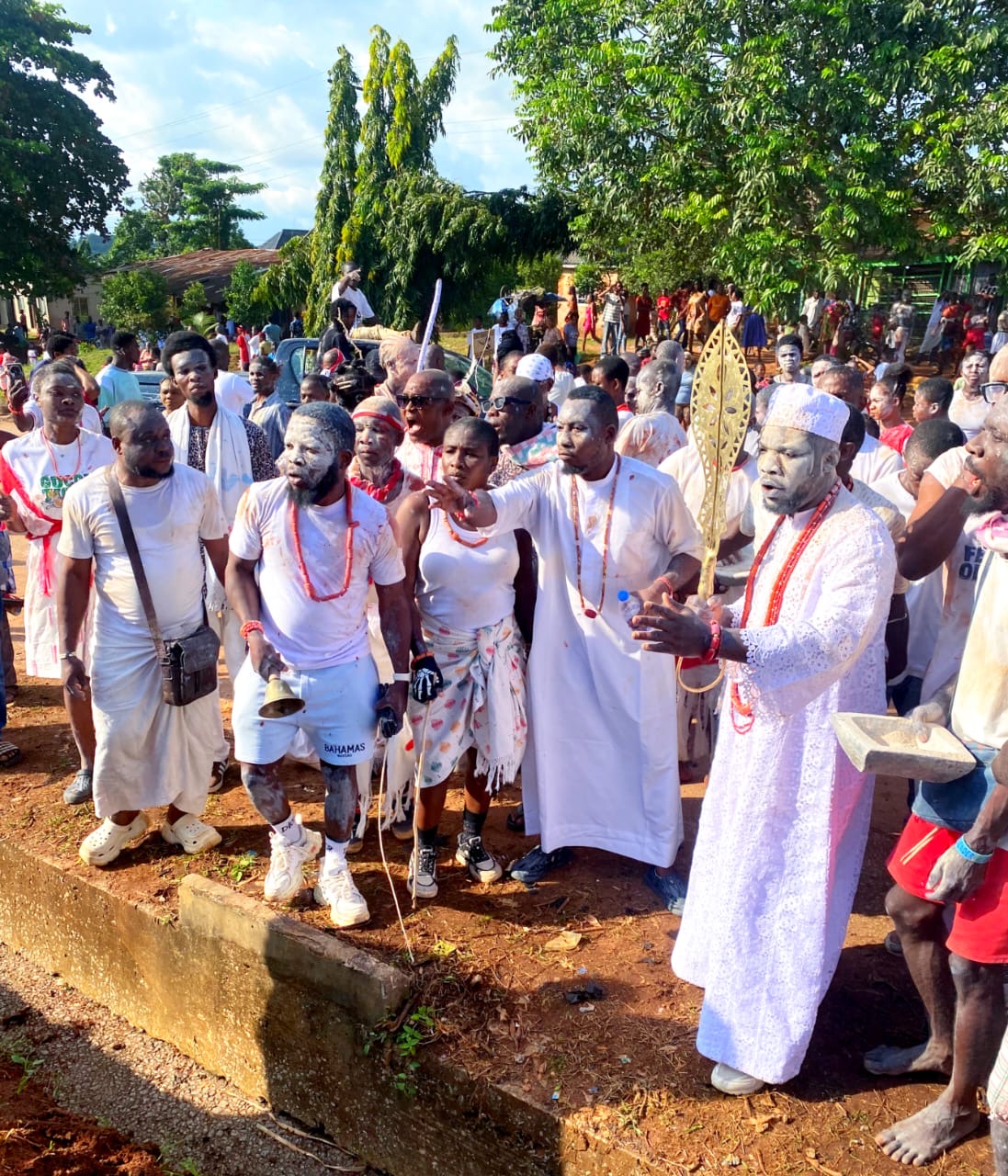
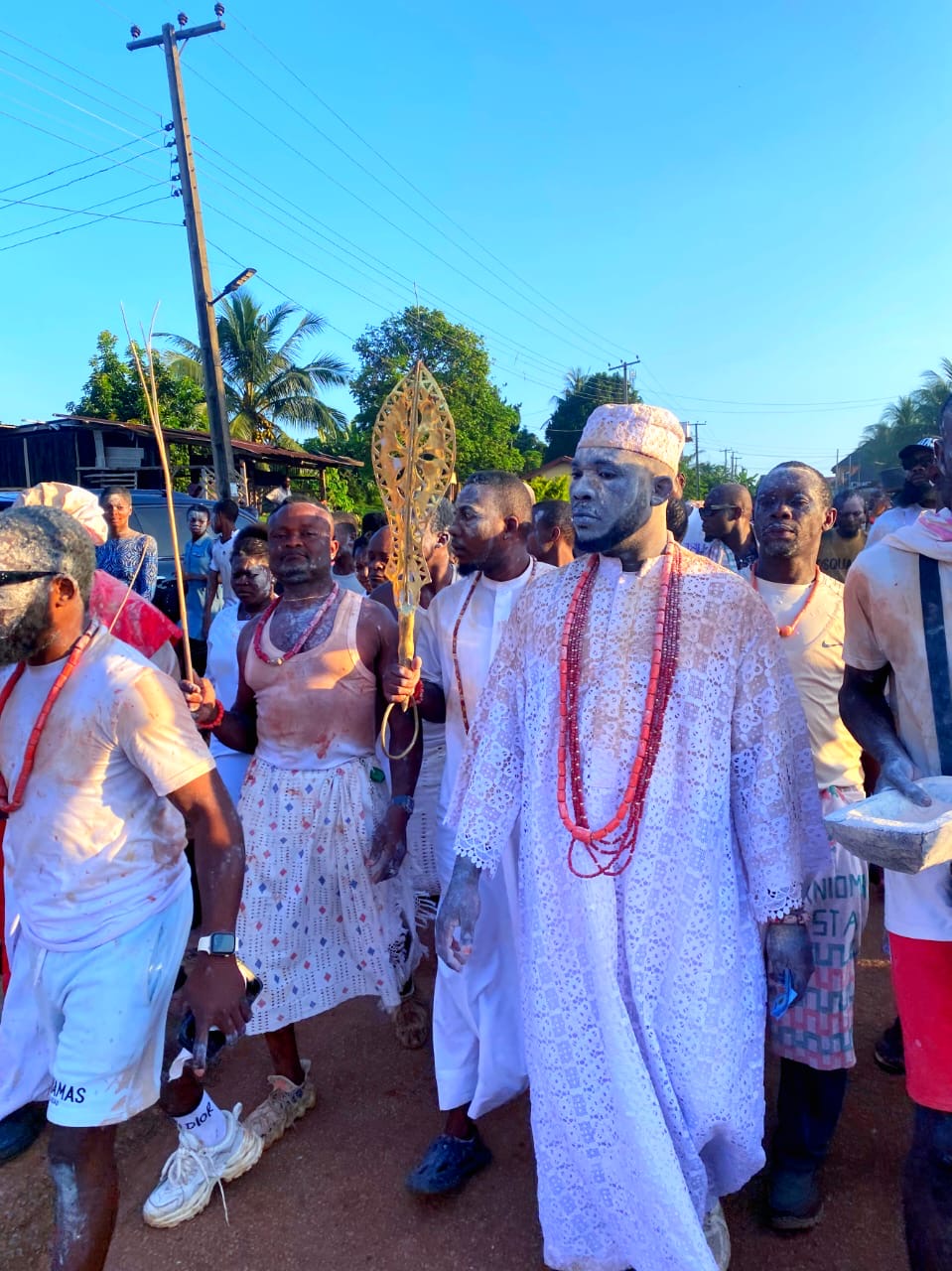
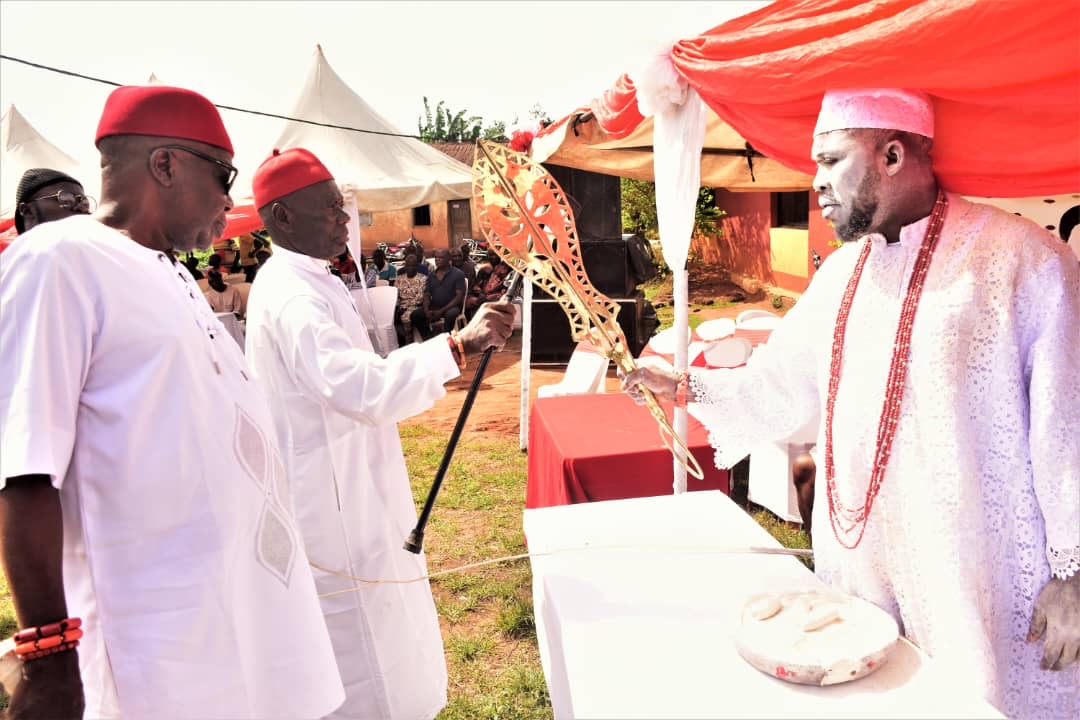
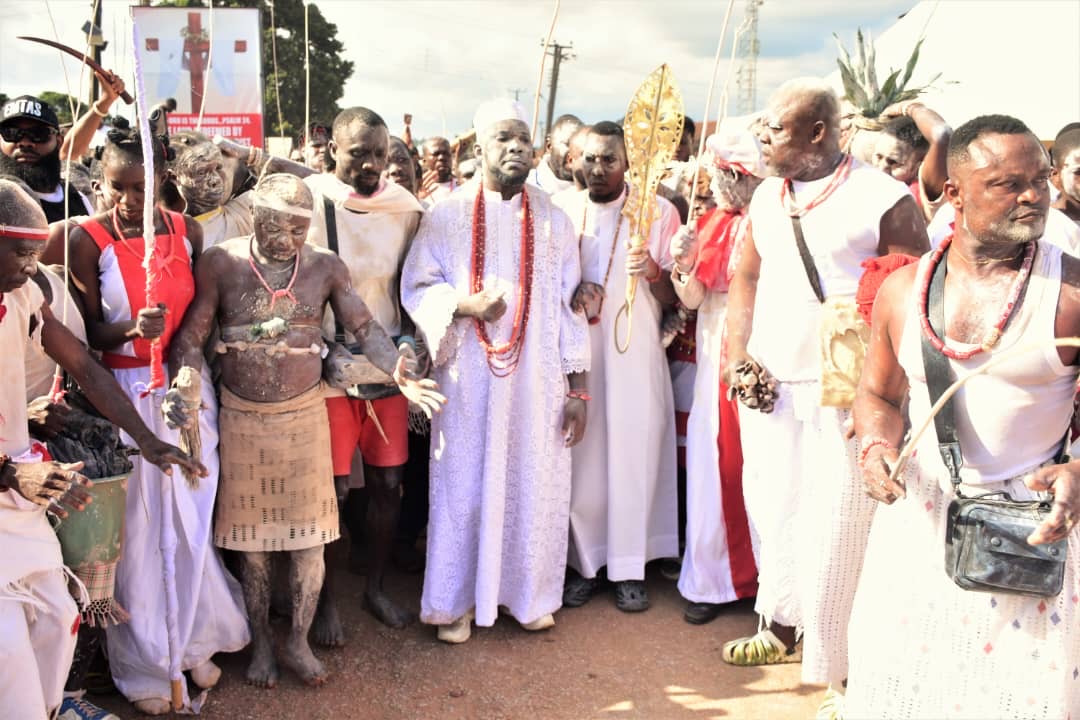
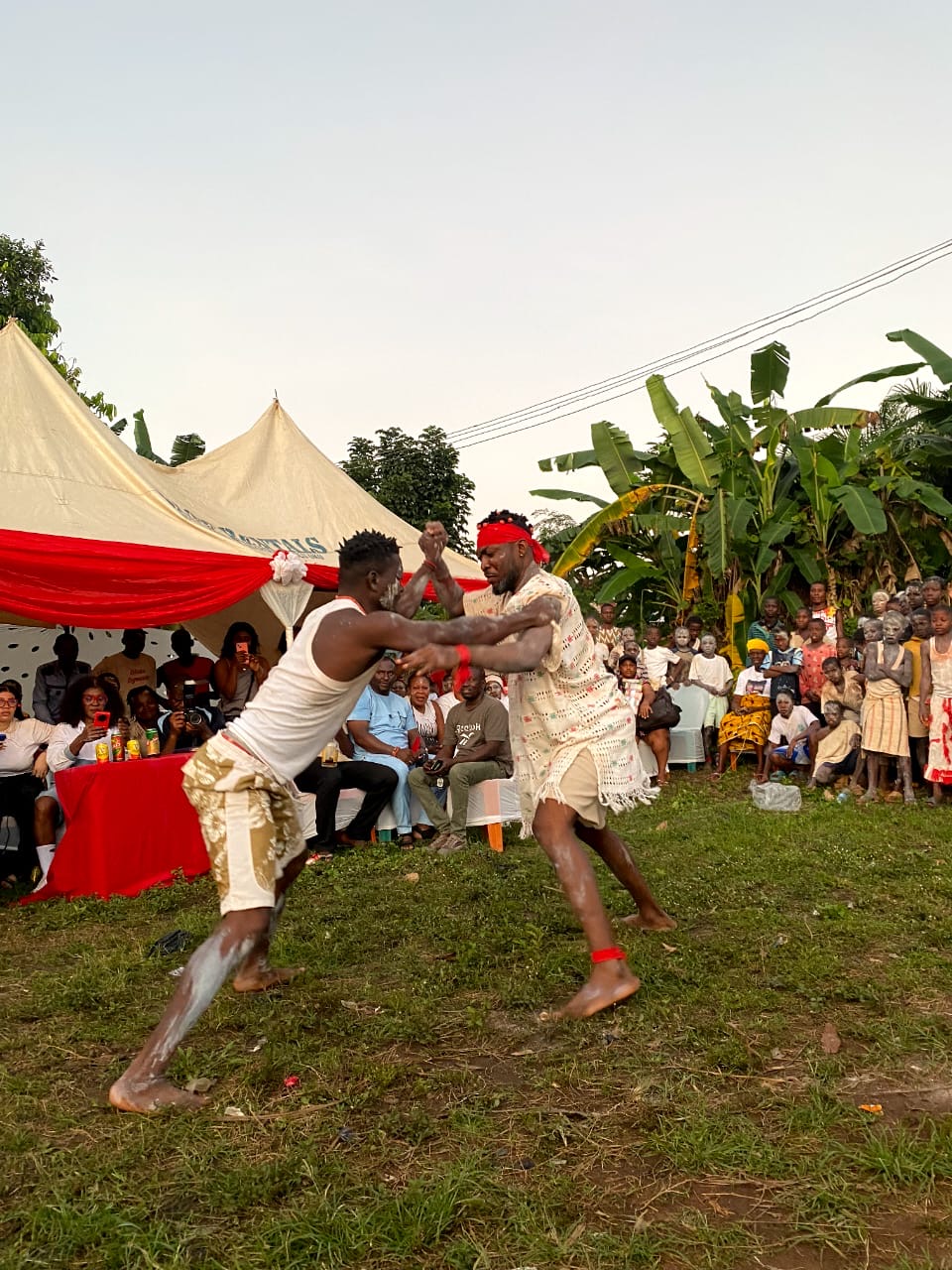






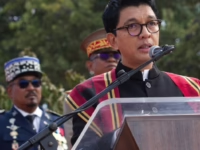
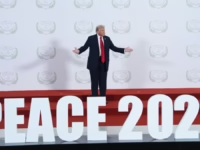

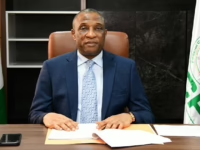

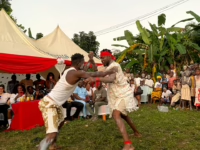




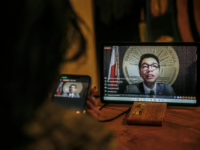
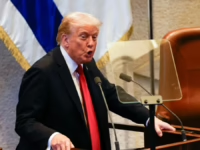
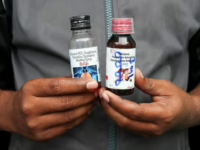



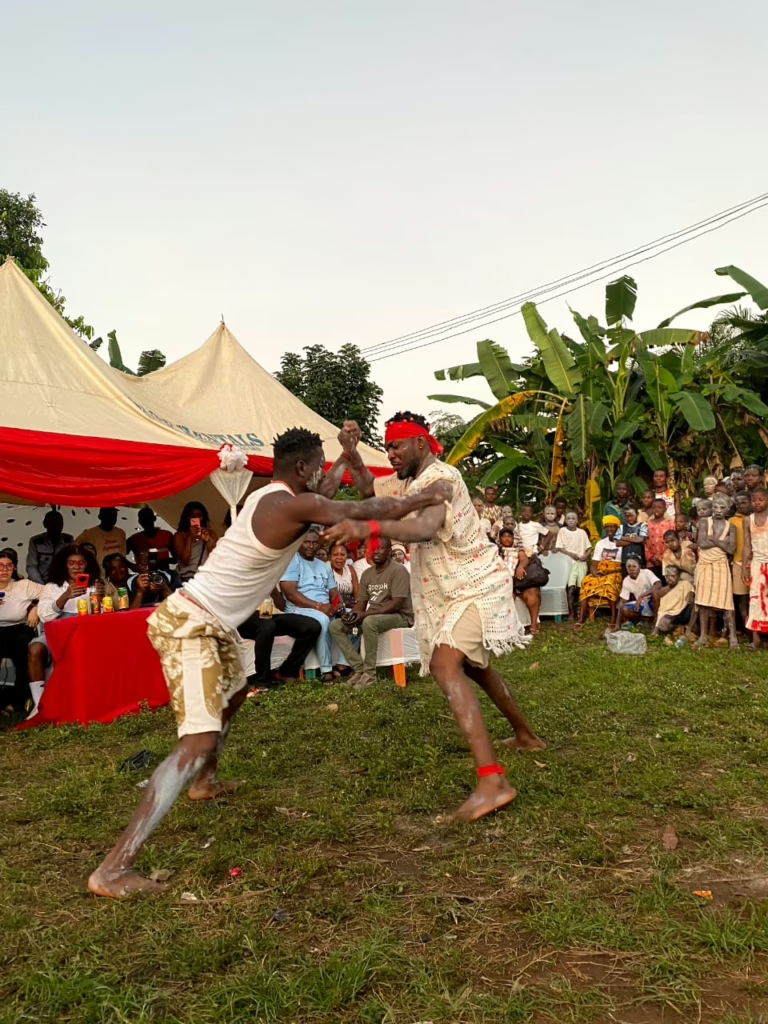
0 Comments